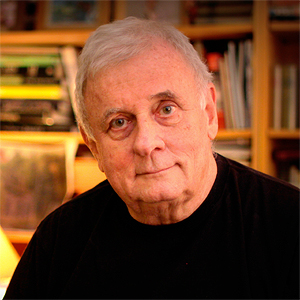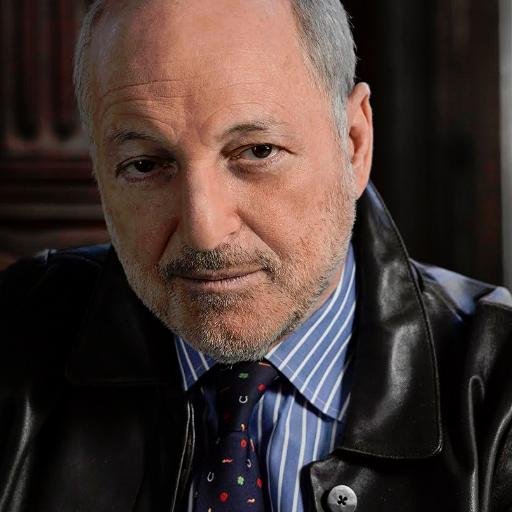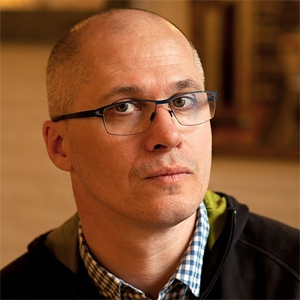
Six Writers on the Genius of Marcel Proust
Siri Hustvedt, Edmund White, Andre Aciman, Francine Prose, Aleksandar Hemon, and Daniel Mendelsohn
In honor of the 145th birthday of French writer Marcel Proust (yesterday, July 10th), we asked six of our favorite contemporary writers why his work is still so important.

Siri Hustvedt
Marcel Proust was not interested in an art that was “a mere vain and tedious duplication of what our eyes see and our intellect records.” He believed this kind of literature could only be false because it “severs” the present self from the past. Proust sought to translate into words a phenomenology of human experience, which necessarily meant describing a geography of absence because the past exists only in our embodied minds and not as it was but rather as we imagine it to have been.
A distinction, however, can be made between involuntary memories that usually arrive through a sensual catalyst and memories that are actively recalled. Much has been made of Proust’s prescience about memory and its resemblance to thought in contemporary neuroscience, but, in fact, he was influenced by the neurology of his time. In 1905-1906, Proust spent six months in a sanitarium under the care of Paul Sollier, a brilliant follower of the most famous neurologist of the previous generation, Jean Martin Charcot. Sollier was interested in memory, and although there are no extant documents that describe his treatment of Proust, the physician was known to have induced in his patients what Julien Bogousslavsky in his 2007 paper refers to as the “emotional surges of involuntary memories.” Proust’s narrator longs for a deeply felt form of re-experience rather than an arid autobiographical account of a personal past hardened by years of reiteration. As I pointed out in a paper, first published in the journal Neuropsychoanalysis (2011), it is not that the madeleine instantly conjures a chain of particular memories in the narrator—what it summons is a feeling, and it is the feeling, which, after a delay, acts as an opening to what once was, never as a perfect recollection but as a particular past alive in the present.
And yet, whatever the precise neurological realities of memory may turn out to be, Proust’s masterwork is a narrative text, not a treatise on physiology. For me reading and rereading In Search of Lost Time has been a long and liquid experience, an immersion in what William James famously called the “stream” of thought. The slow accumulation of sensual details, associations, elaborate metaphors, and meandering stories inevitably creates an illusion that I have entered the borderless movements of the narrator’s singular consciousness, that by following the drift of another person’s thoughts over time, that is, page after page, I have illuminated my own mnemonic processes and felt realities. This is, I think, the strange magic of reading Proust.

Francine Prose
It’s a commitment, today everyone is checking their devices every ten minutes. But reading Proust… it’s a whole world not just a book. Everyone wants to live more than one life and Proust is like “here’s another one you can live.” His offers a certain interface with yours that keeps popping out… I found it completely gripping all the way. As you read more and more and realize how certain themes or notes keep coming back… it’s like life. In your life, or at various points, these things stick in your mind like memories… not of your life but Proust’s and you realize they are your memories of Proust.

Edmund White
People should read Proust because he is the most companionable of all the great authors. Though he’s a mama’s boy and a neurasthenic and into lots of kink, he will take your breath away because he second-guesses all your thoughts. He may be profoundly pessimistic about love and friendship but (and?) he understands human ways better than anyone else. The best long biography is by Jean-Yves Tadié, the best short one is Benjamin Taylor’s slim volume in Yale’s Jewish Lives series.

André Aciman
To read Proust is to read oneself. Nothing that Proust says is really new to any of us. His thoughts and observations have crossed our minds countless times; we’ve seen what he’s seen, and what he’s felt we’ve felt. We’ve admired all the things he worships on our planet—beautiful sunsets, beautiful paintings, beautiful faces. And we too have balked before the very situations he fears or is squeamish about; even if, unlike him, we always pretended not to mind them so much. All of us, without exception, have felt the kind of emotions he describes in such minute detail—emotions that none of us is eager to admit we’re familiar for fear of embarrassing ourselves. There is really very little that Proust writes about that’s so new under the sun: waiting for a mother’s goodnight kiss, being ripped apart by the most shameful feelings of jealousy for someone we’re not even sure we’ve ever been in love with; waiting for a sign, a letter, a phone call from someone who is almost unaware that we exist; stopping everything because the scent of something has reminded us of a past that is never dead or buried. Even the dead, when we least expect it, come back to remind us of their love and of our guilt.
To repeat: reading Proust is like reading oneself. The problem is that many of us can spend an entire lifetime with a therapist and still find reading ourselves a very difficult, if not impossible task. We are not just a knot of so many, many disparate strands, but finding the tools to unravel these strands is no less of a challenge than sorting who we are.
It’s the tools that make Proust the greatest novelist of all time. To find his way through these intricately gnarled strands without cheating or cutting corners or taking easy shortcuts you do need a very precise and incisive tool, and in Proust’s case that tool is his style. The style needs to parse the convolutions that make us who we are and capture what we really feel—not what we claim to feel or wish to believe we feel. Proust’s style is always sobering, disabused, and all-encompassing. His sentences are long because he needs to make certain not to miss anything along the way; but in order to take his reader through such a laborious travelogue and do justice to what he is really after, he needs to let each sentence tells its own story. And indeed each sentence is a story, (1) with its hasty and frequently elegiac beginning, (2) its laundry list of particulars and mini-particulars that remind us that an analyst is frequently nothing more than a fussy lawyer cobbling one clause after the other, and finally (3) its climax which reminds us that for every insight into the human psyche, this master craftsman must start in a lyrical vein and end with something as comic and as pithy and piquant as a limerick written with a surprising finish. I can think of only one other writer capable of such breadth and humanity: Shakespeare.

Aleksandar Hemon
There was a time when literature was a main means of deep inquiry, when the human knowledge acquired by writing/reading a book was extremely valuable. One might long—as I do—for those days, particularly now when much of contemporary U.S. literature is pseudomoralistic epiphany peddling and/or empathy porn. When I want to restore my faith in literature, I read Proust.
Proust’s project was founded on the belief that literature can make important, unique discoveries, that writing can provide space for a mind to reflect upon itself and create an exhausting record of the process. His total commitment to the project is evident not only in the staggering totality of À la recherche du temps perdu, but also in his long, syntactically marvelous sentences, each of which contains, like a fractal, the basic structure of the book. What to an impatient reader ever craving the cheap rewards of empathy might look like chaos is a highly ordered system, where themes and forms recur at every scale. Reading Proust is like watching a galaxy being put together, one particle at a time.
All great books teach us how to read them. We have to adjust, or even abandon, our habitual expectations and submit to a transformation we cannot fully control—the knowledge available is not always easy to absorb. If what great books do is open new human spaces, then the proper first reaction is a sense of being lost in such a space. But the reward of finding our way in that new space, of figuring what is in it, of allowing the discovery to change our thought, far exceeds merely recognizing and confirming what we already know, which is why great books can never be merely descriptive or entertaining.
Sometimes I teach Proust in Paris (to U.S. students), some of whom like to get lost in the parts of the city away from tourist attractions, because it forces them to see it differently, more intensely. After a while, they start organizing the city in their heads from the particles they’ve collected while being disoriented. I often see my students being disoriented just as well somewhere, say, along Swann’s Way, blaming Proust for not being engaged, or for not ringing the bell that would trigger Pavlovian empathy. But then there comes the pleasure of their slowly feeling their way around, and realizing that, like Paris, Proust needs to be constantly revisited. Once I had a student who, just before our Proust class, approached me with a measure of suspicion, and asked:
“Do you really like this?”
“I do,” I said. “And you will too.”
And he did.

Daniel Mendelsohn
Longtemps… dans le Temps: Proust’s vast masterpiece begins and ends with references to Time. Even people who haven’t read the novel know that it is preoccupied with time—or rather, the passage of time, or time past, or “lost” time (which may be recuperable by eating a madeleine at the right moment)—vague impressions strengthened both by the titles of the most popular English translations (In Search of Lost Time, Remembrance of Things Past) and by the casual and common use of the adjective “Proustian” nowadays to refer to pretty much anything sepia-toned, anything having to do with “memory.”
Proust’s novel is indeed about Time, just as it is about many other things: desire, love, family, jealousy, society, class, music, literature, art, creativity, longing, sexuality, landscapes, illness, snobbery, politics, fashion, Venice, Paris, the seaside, airplanes, the post, the theater, automobiles, the list goes on and on. The whole world, in a word, refracted through the prism of the powerful and unforgettable consciousness of “the Narrator,” whose growth and education and evolution into a figure capable of writing this immense and yet fine-grained epic—an artist who can grow to the size of the world—is the ostensible “story” of the novel. (Karl Ove Knausgaard’s My Struggle, by contrast, shrinks the entire world to the size of the narrator’s consciousness; it is the inverse of Proust, to which it is often, if erroneously, compared. Proust’s novel grows out of soil of 19th-century fiction, with its large and confident perspectives; Knausgaard’s emerges from the miniaturized, atomized world of the blogosphere.) For this reason alone, the novel should be read: it gives you the world.
But to return to Time: this is not just the subject, or one of the subjects, of In Search of Lost Time; it is also the medium in which the novel must be read, if it is to be understood. To read this novel takes time; there is no faking it, there are no short-cuts, like five-minute yoga (one of the many fatuities of a frenetic era that is obsessed with “wasting” time, as if to spend time on anything were somehow a loss). If the novel itself is very long, it’s because the arcs of its stories are immense and drawn out; part of the pleasure of reading it is that it unfolds much as life does—over long periods of time during which you may forget this or that person or event only to find yourself pleasantly surprised to run into a familiar-seeming face much, much later. If you take your time reading Proust, you will have these extraordinarily life-like thrills of recognition, just as the Narrator does—as, for instance, when he realizes that the “Lady in Pink” whom he met as a child in his uncle’s drawing room is the same person as Odette, his friend Swann’s mistress. (My own favorite: one can assume through much of In Search of Lost Time that Odette’s surname, de Crécy, is one of the pretentious pseudo-aristocratic inventions favored by high-class courtesans of the era; when, deep into the novel, the Narrator runs into an aging and impoverished aristocrat whose name turns out to be de Crécy, you realize that there really was a husband, that the name is real: and much about Odette’s past is revealed retroactively.)
But to glean these moments you must pay attention. Proust’s style, even, requires Time, demands the attentiveness that only taking your time yields: the sentences themselves, immense, winding, highly subordinated, take time to get through, to parse, to absorb, to understand. You cannot read Proust’s sentences fast, just as you cannot read the novel fast; you cannot read his clauses inattentively, just as you cannot read whole volumes without paying due attention. To do so, certainly, is one sure way to have things get “lost.”
Or to be the loser. Recently I was traveling on a train next to a young man—a recent college graduate, I guessed—who was reading a hugely fat Victorian novel. Since I teach literature, this made me happy. But as I watched him I noticed that roughly every 90 seconds he’d fish out his iPhone to check his text messages. After a while this reflexive tic made me so nervous that I moved to another seat. As a writer as well as a teacher, I found it nerve-wracking to think that this is how some people are reading novels these days—which is to say, not really reading them, because you can’t read anything serious in two-minute spurts, or with your mind half on something else, like the messages you may be getting. Multitasking is the great myth of the present era: you cannot, in fact, do two things at the same time.
Especially if one of them requires considerable resources of attentiveness and intellectual commitment. To my mind, a very important reason to have a go at Proust right now—which is to say, to read him with a mind as receptive as his was large—is to exercise one’s powers of commitment. One wonders if, for Proust, it will be death by a thousand textos. Only time will tell.



















